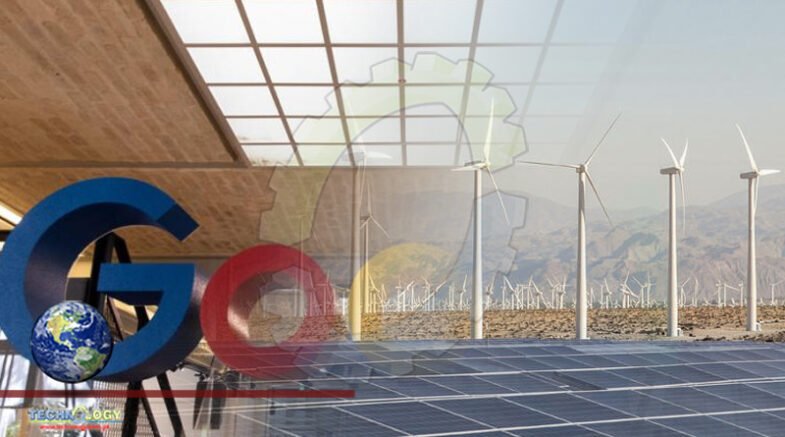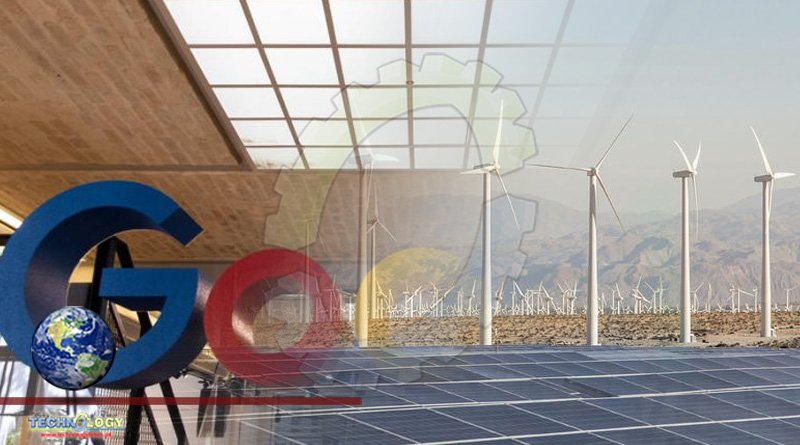Expansion of cloud data and Renewable Energy move has been presented as marking a further step towards Germany’s digital sovereignty.

The internet giant announced on Tuesday (31 August) it will invest around €1 billion to expand the data centers that support its cloud computing services, the largest investment package the US giant has put together in Germany in over 20 years.
Although the Big Tech company anticipates green energy will be used to support the expansion of energy-intensive data infrastructure, critics see this as a missed opportunity for more ambition in the field of renewable energies.
Google wants to “shape the future with Germany and for Germany,” Google’s head of public affairs, Eveline Metzen, told a press conference on Tuesday.
“When we think of the big issues of the future that will shape Germany, it’s digitalisation on the one hand, and sustainability on the other,” Philipp Justus, vice president of Google Central Europe, said.
Two new cloud data centres are planned in Hesse and near Berlin to reduce data traffic latencies and provide German and European customers with a better cloud infrastructure.
On top of that, a significant part of the investment is going into the expansion of renewable energies, for which a partnership with the German company Engie was announced. By 2030, the data centres are to be supplied only with electricity from renewable energies.
“Energy efficiency, renewable energies and data are the three most important pillars in achieving climate neutrality,” Andreas Kohlmann, the CEO of the German Energy Agency (DENA) said, also praising the investment package.
Economy Minister Peter Altmaier was also pleased with Google’s investment offensive, calling it a “strong signal” and a good testimony for Germany as a business location.
Together with its “important partner” Google, Germany has moved a step closer to the goal of digital and data sovereignty, Altmaier continued.
The minister also stressed that Germany had made good progress in the “digital race to catch up” and that in the “last two years more has been set in motion than in the last 20 years before.”
Altmaier referred in particular to the Gaia-X project initiated jointly with France – in which Google is also involved – as one of the milestones towards European data sovereignty. As a cloud infrastructure project, Gaia-X is trying to set standards and minimise the often criticised “lock-in effects” in cloud applications.
Large US tech giants have shown a greater interest in Germany recently.
In March, for example, Apple announced a €1 billion investment in its ‘European Silicon Design Centre’ in Munich, which is to focus on the expansion of 5G and wireless technologies in particular.
Microsoft has also ramped up investments in Germany, opening two new cloud data centre regions in August 2019 to offer European industrial and public sector customers protection against potential outages, a Microsoft Germany spokeswoman told EURACTIV.
Microsoft has already raised the share of renewable energies in the operation of its data centers to 60% and aims to become carbon negative by 2030.
A lack of ambition?
But Google plan’s to switch to renewable energies has also drawn criticism.
Given Google’s strong economic position, the lack of investment in truly innovative technologies like immersion cooling, as part of Google’s unveiled measures, in particular, should be criticised, leading Green MEP Jutta Paulus told EURACTIV. Google’s measures rely primarily on proven technologies, the MEP added.
As a global market leader, Google would be in an ideal position to commission startups to develop promising technologies on a trial basis, the Green MEP added, noting that the tech giant’s aim to “accelerate progress far beyond Google” is not reflected by the lack of ambition in the published plans.
Google’s plans to invest in Germany on such a scale and to face up to its responsibility in the fight against the climate crisis should nevertheless be welcomed, the MEP added.
Source EURACTIVE.com
